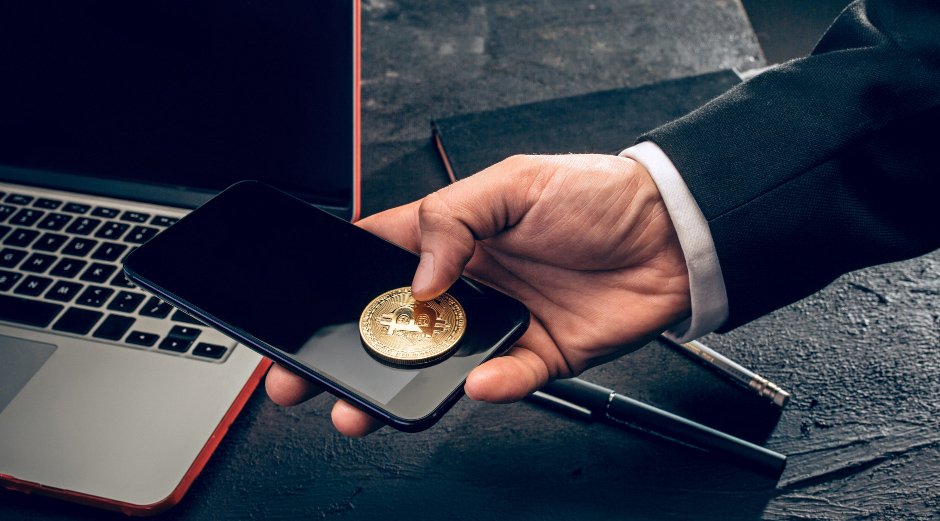
In today’s digital age, cryptocurrencies have become increasingly popular as a form of investment and transaction. With the rise of cryptocurrencies, the need for secure storage solutions has also grown. This is where crypto wallets come into play. In this article, we will explore the importance of crypto wallets in securing your digital assets and provide insights into the different types of wallets available.
The Significance of Crypto Wallets
A crypto wallet, also known as a digital wallet or cryptocurrency wallet, is a software program that allows users to securely store, send, and receive digital assets. It serves as a virtual bank account for your cryptocurrencies, enabling you to manage your funds with ease.
Time is the friend of the wonderful business, the enemy of the mediocre
- "Charlie Munger"
One of the primary reasons why crypto wallets are crucial is the decentralized nature of cryptocurrencies. Unlike traditional banking systems, cryptocurrencies are not held or regulated by a central authority. This decentralization provides users with greater control over their assets but also increases the risk of theft or loss.
A crypto wallet acts as a secure vault for your digital assets, protecting them from unauthorized access and potential hacking attempts. It utilizes cryptographic techniques to ensure the integrity and confidentiality of your transactions, providing you with peace of mind.
There are several types of crypto wallets available, each offering different levels of security and convenience. Let’s explore some of the most common types:
Hardware wallets are physical devices designed specifically for storing cryptocurrencies offline. They resemble USB drives and are considered one of the most secure options available. Hardware wallets keep your private keys offline, making them inaccessible to hackers or malware. They are immune to online threats and provide an extra layer of protection.
2. Software Wallets
Software wallets are applications that can be installed on your computer or smartphone. They offer convenience and accessibility, allowing you to manage your digital assets on the go. However, software wallets are more susceptible to malware or hacking attacks compared to hardware wallets. It is essential to choose reputable wallet providers and keep your software up to date to minimize risks.
3. Online Wallets
Online wallets, also known as web wallets, are cloud-based wallets that store your private keys on remote servers. They offer easy accessibility and are often integrated with various cryptocurrency exchanges. However, online wallets pose a higher security risk as they are vulnerable to hacking attempts. It is crucial to choose a reputable online wallet provider and enable additional security measures such as two-factor authentication.
4. Paper Wallets
Paper wallets are physical copies of your private and public keys printed on paper. They are considered one of the most secure options as they are entirely offline and immune to cyber threats. However, paper wallets require careful handling and storage to prevent loss or damage. It is crucial to keep them in a safe and secure location.
While crypto wallets provide a secure storage solution, it is essential to follow best practices to enhance the security of your digital assets:
1. Choose a reputable wallet provider: Research and select a trusted wallet provider with a proven track record in security.
2. Enable two-factor authentication (2FA): Utilize additional security measures such as 2FA to add an extra layer of protection to your wallet.
3. Keep your software up to date: Regularly update your wallet software to ensure you have the latest security patches and bug fixes.
4. Use strong and unique passwords: Create strong, complex passwords for your wallet and avoid reusing them for other accounts.
5. Backup your wallet: Regularly back up your wallet and store the backup in a secure location. This will help you recover your funds in case of loss or theft.
6. Be cautious of phishing attempts: Be wary of suspicious emails or websites that may attempt to steal your wallet information. Always double-check the authenticity of the source before providing any sensitive information.

In the realm of investment opportunities, Bitcoin has emerged as a powerful contender, offering investors the potential to unlock daily profits. This article explores the dynamics of Bitcoin investment, shedding light on how individuals can...

In the fast-paced world of finance, investors are constantly seeking avenues to maximize returns and diversify their portfolios. One such avenue that has gained significant traction in recent years is cryptocurrency investment.

In the fast-evolving world of cryptocurrency, one of the most critical decisions investors face is selecting the right wallet to store and manage their digital assets. With the increasing prevalence of cyber threats and...